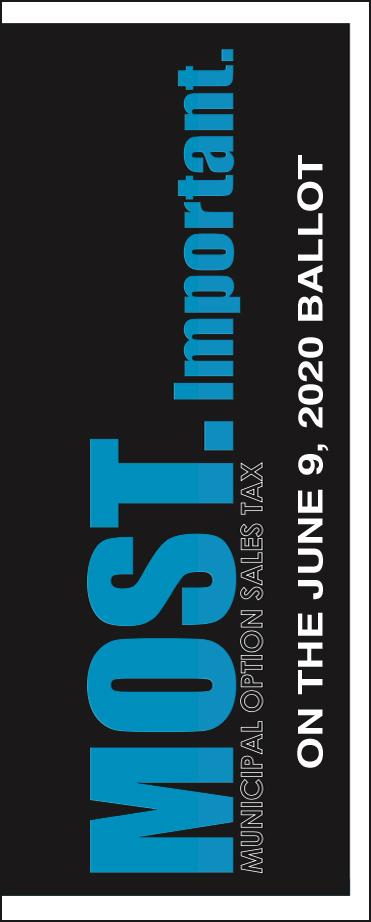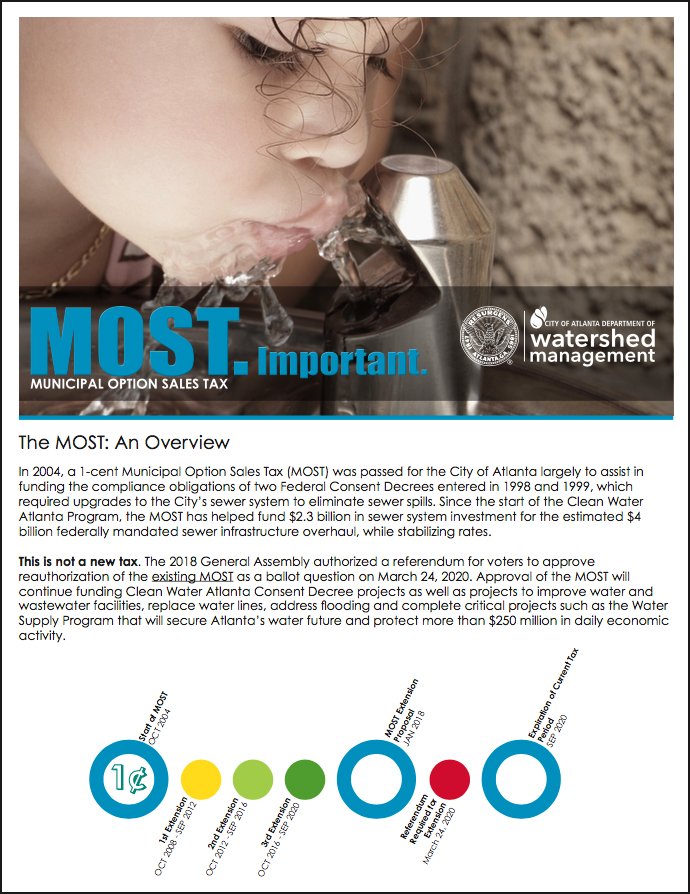Municipal Option Sales Tax (MOST)
The MOST ensures that responsibility for clean water is shared by ALL users.
What is the MOST? (Municipal Option Sales Tax)
The Municipal Option Sales Tax (MOST) requires reauthorization on the June 9, 2020 presidential primary ballot. This is not a new tax. The MOST is a 1-cent sales tax on most goods purchased and services performed within the City. The MOST assists with paying for Atlanta’s two (2) federal Consent Decrees: Combined Sewer Overflows (CSO) Consent Decree and Sanitary Sewer Overflows (SSO) Consent Decree issued in 1998 and 1999 that require investing in water and sewer improvements estimated at $4 billion.
How much is the MOST?
The MOST is a 1-cent tax, already being paid, on most goods purchased and services performed inside the City of Atlanta that are subject to sales tax, except motor vehicle sales.
How much revenue has the MOST generated?
Since October 2004, the MOST has generated more than $1.8 billion in revenue.
How is the MOST revenue used?
The MOST has helped fund more than $2.3 billion in sewer system investment for the estimated $4 billion federally mandated sewer infrastructure, while stabilizing rates. The City has successfully met the obligations of the CSO Consent Decree, and the MOST will assist with offsetting the cost of the work remaining to be completed under the SSO Consent Decree. Revenue from the MOST has also helped create 24,000 local jobs and support $600 million in small minority and female-owned business participation.
When is the MOST up for reauthorization again?
The MOST reauthorization measure will be on the June 9, 2020 primary ballot.
Does reauthorization mean an additional 1-cent tax?
No. It is merely a reauthorization of the existing 1-cent tax.
How does the MOST affect water/sewer rates?
The MOST revenue has staved off a 25% increase in water/sewer rates.
Does reauthorization mean an additional 1-cent tax?
No. It is merely a reauthorization of the existing 1-cent tax. If the MOST passes, Atlanta’s in-City tax rate will remain at the current level.
How does the MOST affect water/sewer rates?
The MOST revenue has staved off a 25% increase in water/sewer rates.
Accomplishments
With the help of MOST revenues, the City has:
- Repaired and replaced over 387 miles of aged sewer lines;
- Dramatically decreased the number and volume of sewer spills (62% and 97% reductions, respectively) since 2004;
- Provided over 57 miles of sewer capacity relief throughout the City; and
- Supported over $5 billion in development that would not have been possible without upgrades to the sewer system.
Highlights of the Clean Water Atlanta Program and Atlanta water infrastructure projects:
- Construction of Old Fourth Ward Park Pond, a capacity relief project constructed to capture stormwater runoff and reduce flow to the combined sewer system and eliminate neighborhood flooding.
- Installation of the Proctor Creek Diversion Structure, along the Proctor Creek Trunk system to help manage high ows in the sewer system and allow for diversion of up to 10 million gallons per day from the R.M. Clayton Water Reclamation Center (WRC) to the Utoy Creek WRC.
- Completion of 387 miles of small diameter sewer rehabilitation to eliminate structural defects found during the Sewer System Evaluation Survey (SSES) and reduce infiltration/inflow into the system, which maximized system capacity.
The History of the MOST
The MOST was initially approved on July 20, 2004, and has been reauthorized by Atlanta voters by a 3-1 margin every four years. Since 2004 the MOST has generated more than $1.876 billion to help ensure Atlantans a future of clean, safe drinking water and environmentally sound wastewater treatment.
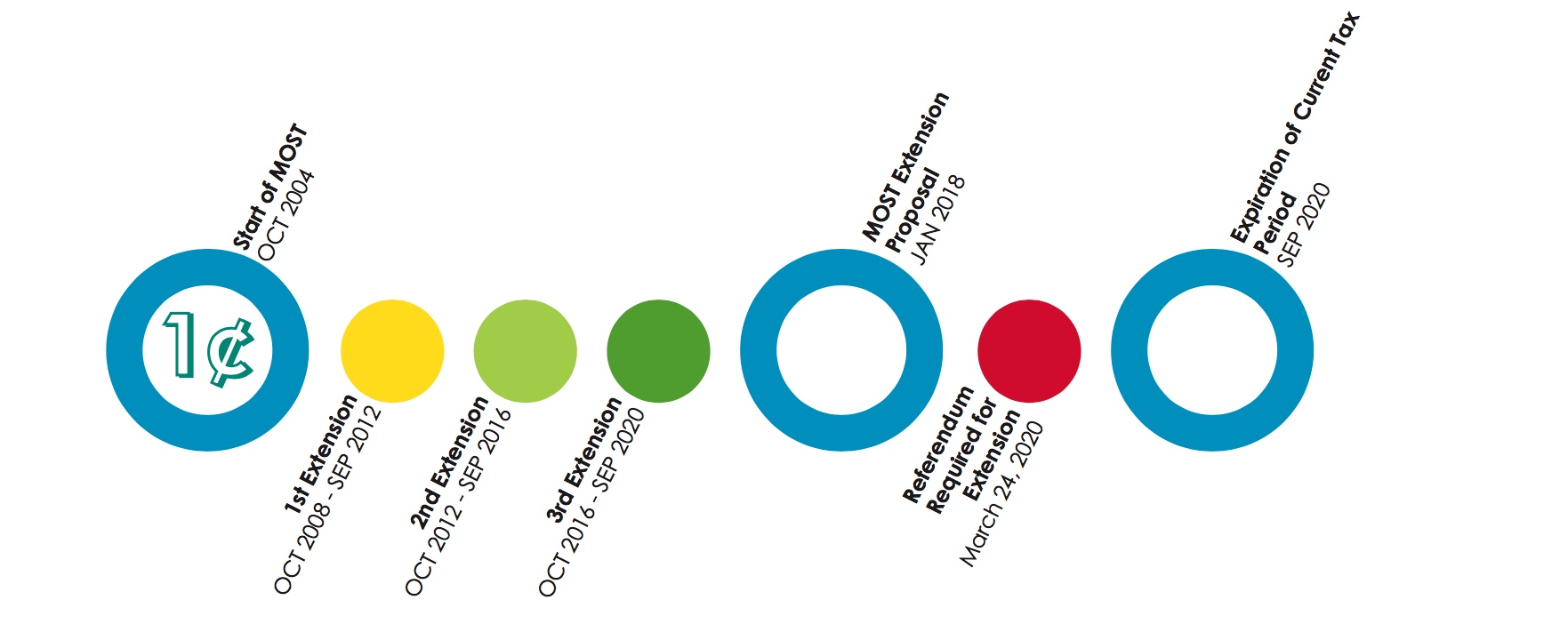


For More Information
2020 MOST Q&A Brochure
2020 MOST One Page Flyer
2020 March Bill Insert
2020 February Bill Insert
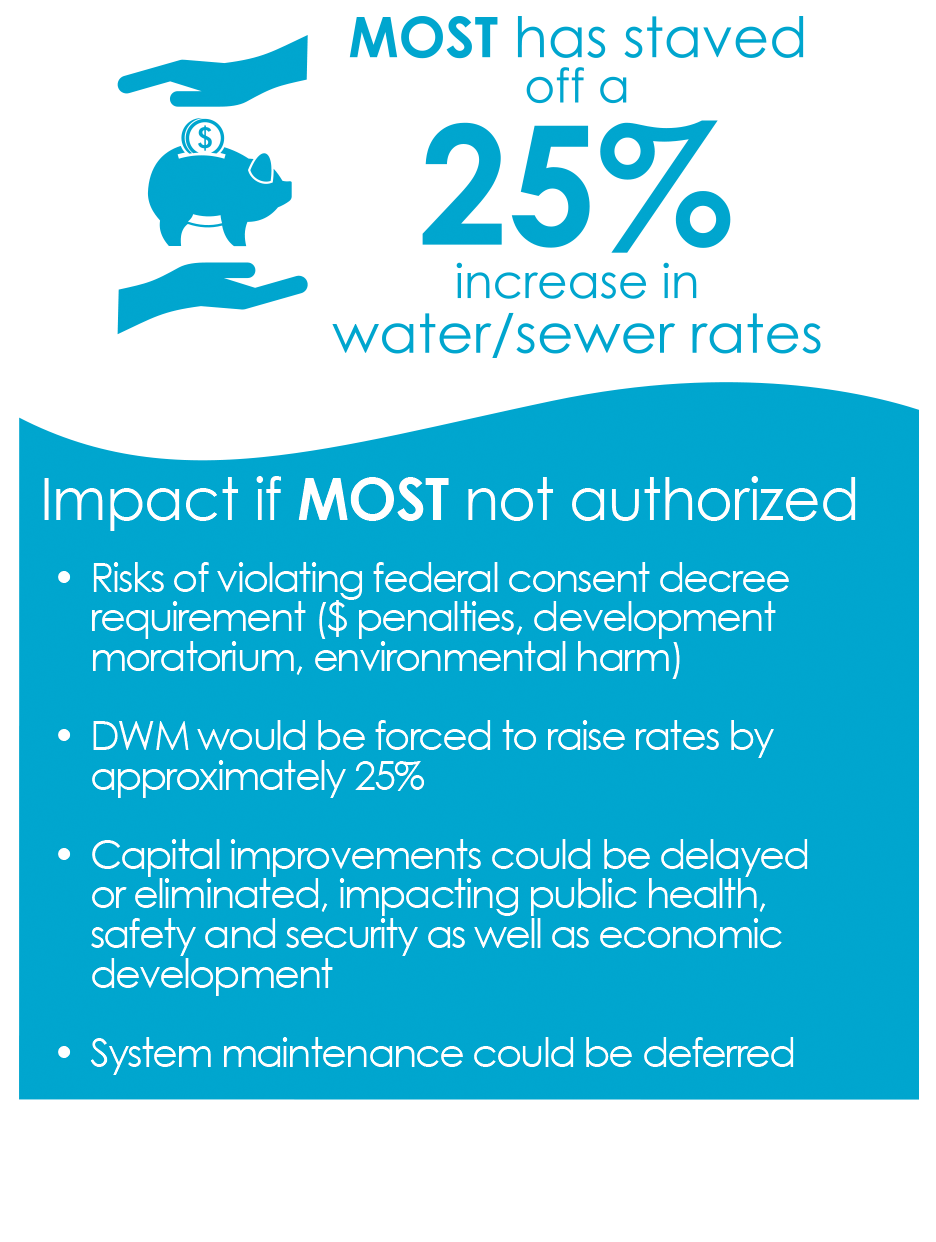

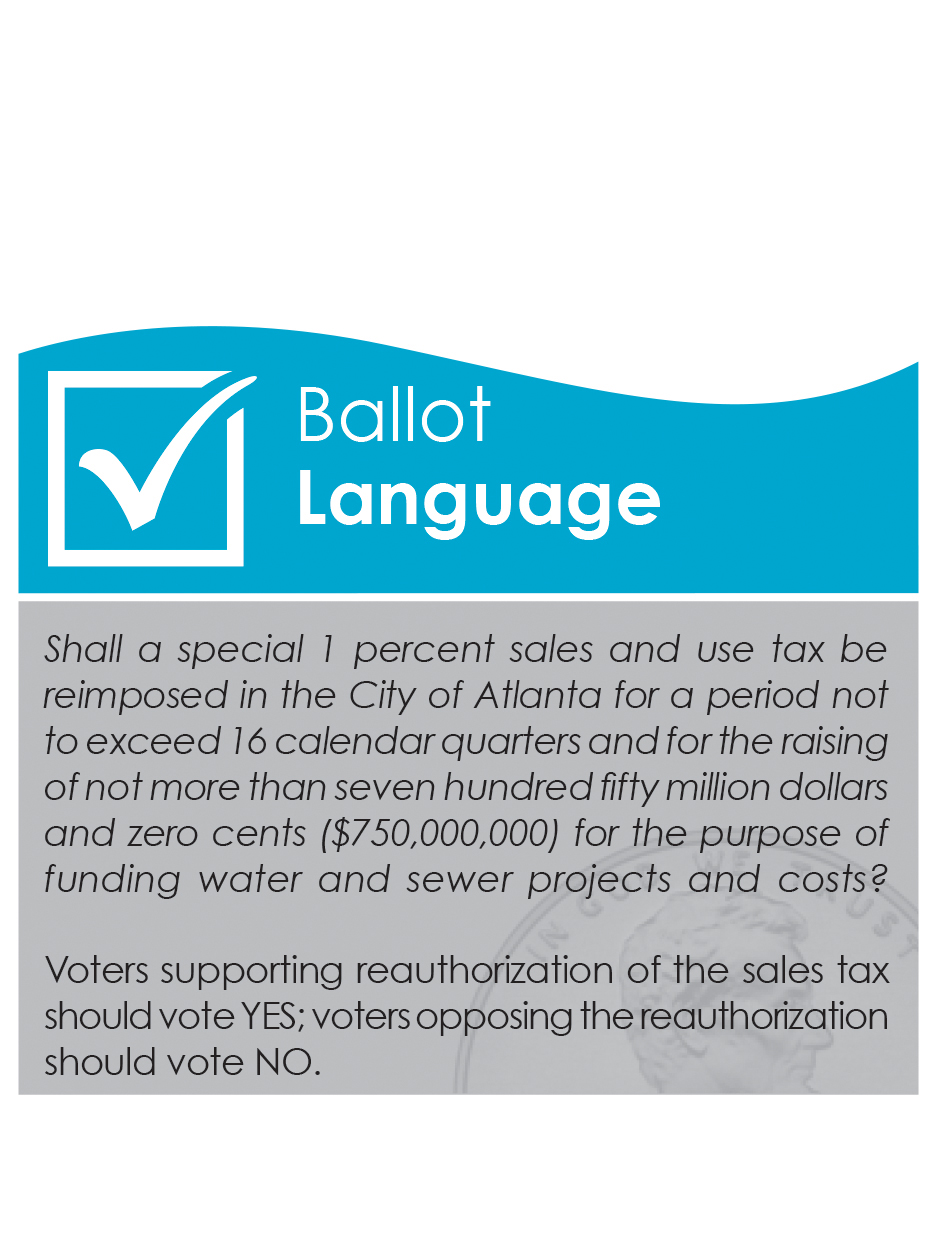

Our Address
Department of Watershed Management Administrative Offices
72 Marietta Street NE
Mon-Fri – 8:15 am to 5:00 pm
City Directory
Need to contact another city department?


